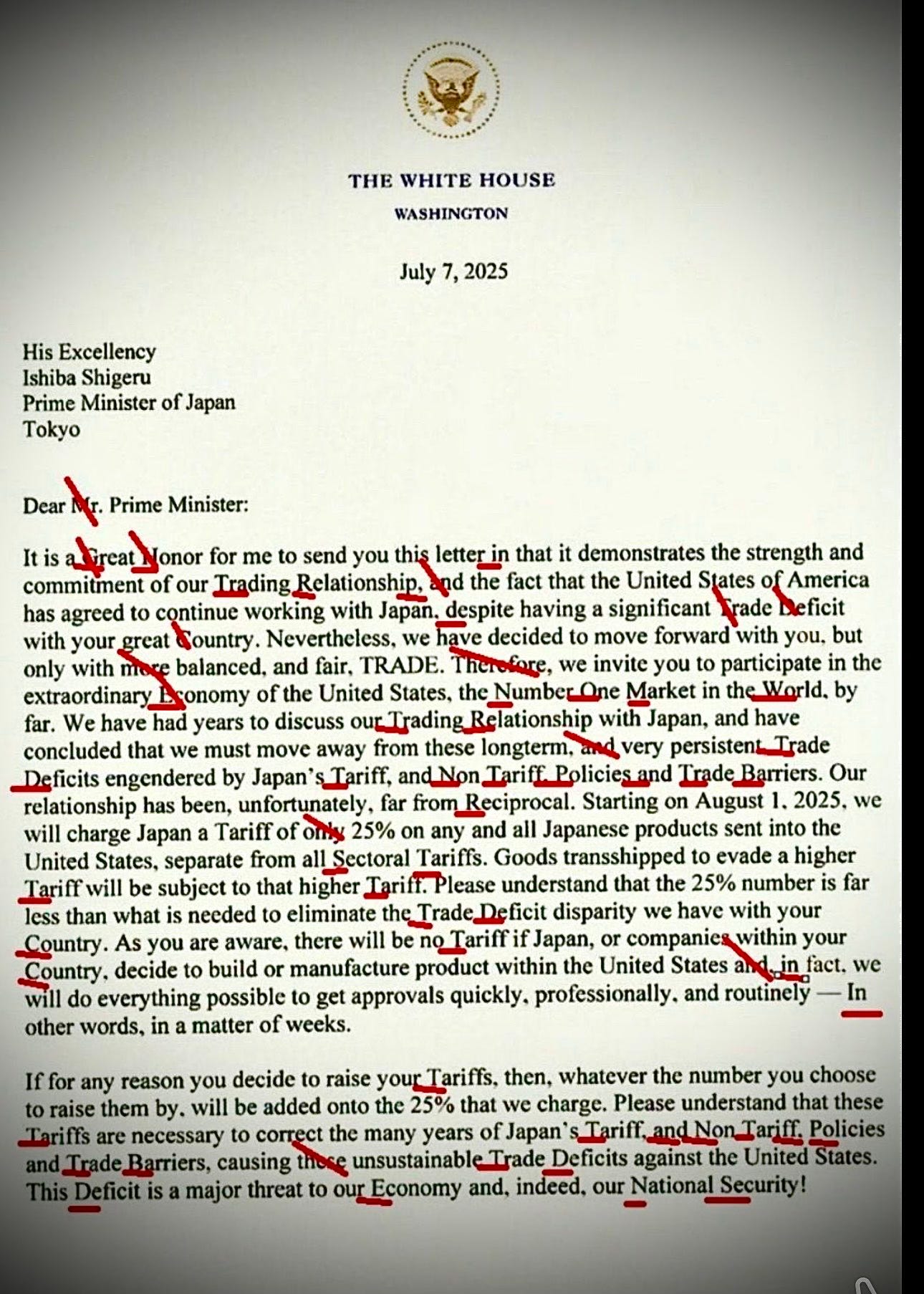By being impatient, matters are damaged and great works cannot be done.
Yamamoto Tsunetomo, The Book of the Samurai
200 years ago, Japan had remained largely closed to the outside world, maintaining strict isolation under the Sakoku policy. Only a limited number of Dutch and Chinese traders were allowed to operate under tight restrictions in the port of Nagasaki. But in 1853, the world began to shift. Commodore Matthew Perry arrived in Edo Bay with a squadron of imposing “Black Ships,” carrying a letter from U.S. President Millard Fillmore. The letter urged Japan to open its ports to American trade, arguing that the world was evolving and isolation was no longer sustainable.
Along with the letter, Perry presented an array of gifts meant to impress and intimidate: a miniature steam locomotive, a telegraph machine, American textiles — and a white flag. While the other items showcased Western technological advancement, the flag came with a subtle but chilling message. Perry explained that if Japan refused to open its doors and chose instead to resist, they might one day need to use this white flag — to surrender. The veiled threat, combined with the overwhelming display of naval power, made it clear that Japan’s policy of isolation was nearing its end.
Fast forward to July 2025, and an American president has sent a new letter of trade to Japan — this time without theatrics or careful diplomacy. Instead, it’s blunt, riddled with errors, and seemingly indifferent to protocol or respect.

Et tu, Jordan?
Jordan hasn’t received a letter (yet 🧿). Maybe it’s still being drafted, or perhaps our top diplomats have already finalised a deal and are just waiting for the ink to dry. I genuinely hope we don’t receive one — it would risk complicating a relationship in which Jordan has consistently shown commitment and restraint in supporting regional stability. (more on that here).
The damage to our national exports, however, has already been done. According to the latest trade data from the US (since Department of Statistics in Jordan is typically delayed), Jordanian exports to the USA have already fallen by 4% year-to-date compared to the same period last year. The sharpest decline was in April (-22%) and May (-19%). What’s surprising is the drop in April — given that a shipment takes at least 3–4 weeks to reach U.S. shores, not including the time needed to place the order, manufacture the goods, and prepare them for export. Imports from the USA have gone up 26% in that same period.

Cui bono?
Preliminary data on the tariffs looks promising from a fiscal standpoint:
For April, May, and June, the U.S. federal budget is showing a surplus — thanks in part to the tariff collections.
The US Treasury reported a $27 billion surplus in June. Customs duties accounted for just over $27 billion — a 301% increase compared to June 2024. For the fiscal year to date, tariff revenues have reached $113 billion, up 86% from the same period last year.

But let’s be clear: those footing the bill are American importers, who then pass the cost along the supply chain to the end consumer. Tariffs, in practice, are simply another form of tax — one that ultimately burdens the American people.
Side Note: The Chinese are also feeling the ‘pain’

Current state of tariff affairs:
I’ll update this post next month when we get fresh data in my upcoming quarterly report. (It’s not easy to put one together when many government entities don’t update their numbers regularly — for example, I’m still waiting on the SJD to confirm the 2024 marriage data and see if it backs my hunch in this post:
)






